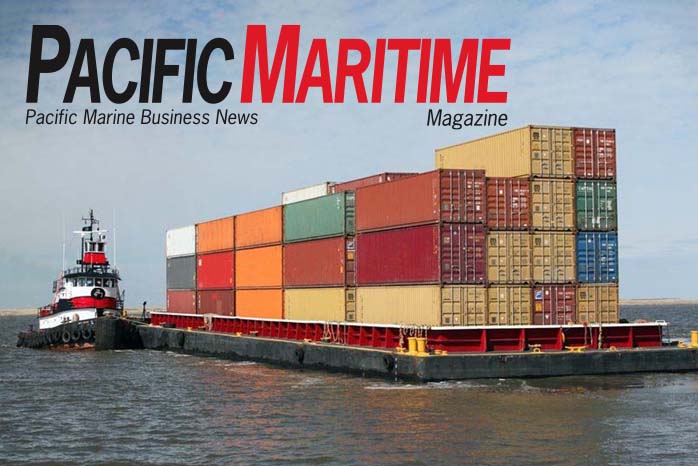Transportation and clean air officials in California, Oregon, Washington and other states have sent a letter to U.S. Senate and House leaders urging support of federal funding for clean ports.
In the letter, the signatories express support for President Joe Biden’s American Jobs Plan proposal to invest an additional $17 billion in coastal ports, inland waterways, land ports of entry, and ferries. They also call out the need to invest in zero-emission infrastructure and equipment at the nation’s seaports in order to build “a cleaner, better future” and transform the system that moves the nation’s freight, especially as the economy recovers from the COVID-19 pandemic.
“Communities surrounding ports and freight corridors have long suffered from increased pollution and harmful emissions,” California State Transportation Agency Secretary David Kim said in a prepared statement. “Working together, we can quickly develop a clean and modern port and freight system that strengthens our economy and communities.”
“Communities adjacent to our ports and beside truck-laden highways are among the hardest hit by toxic diesel pollution,” California Air Resources Board Chair Liane Randolph added. “California is investing billions of dollars to accelerate the necessary shift to zero-emission short-haul trucks and cargo-handling equipment, and much cleaner harbor craft. We call on the federal government to join us in this environmental justice challenge with infrastructure investments at our ports and along our trade corridors to support our efforts, and finally clean the air these communities breathe.”
The letter, which is dated July 14 and was addressed to House Speaker Nancy Pelosi and Senate Majority Leader Chuck Schumer, notes that many states are making major investments in zero-emission freight equipment and infrastructure, and that sustained federal funding will increase the number of states committed to zero-emission transportation.
An example used is Gov. Newsom’s California Comeback Plan, which supports California’s efforts to tackle climate change with a $3.9 billion package to accelerate zero-emission vehicle (ZEV) goals, leading to cleaner air for future generations. This includes more than $1 billion to put 1,000 zero-emission drayage trucks, 1,000 zero-emission school buses and 1,000 transit buses, as well as the necessary infrastructure, on California roads.
An additional $925 million is intended to help drive consumer adoption of ZEVs, including funding to expand the state’s “Clean Cars 4 All” incentive program for lower-income Californians.
“In California, about 30,000 heavy-duty trucks operate at the state’s seaports. Communities near the seaports have higher cancer risk and high rates of asthma compared to the rest of California. Across the nation, other communities near major ports face similar challenges,” the letter reads in part. “We know we can do better. Modern and clean ports and freight systems are key to American competitiveness and investing in that future will create good jobs.”
“Federal funding to convert existing polluting vehicles and equipment to zero-emission and provide associated charging infrastructure would accelerate progress already underway,” the letter continues. “For example, converting drayage fleets and similar equipment at freight hubs, as well as making corridor investments of zero-emission charging infrastructure, can accelerate the turnover of heavy-duty vehicles, lead to greenhouse gas reductions, and provide especially important air quality benefits for nearby communities.”
The letter goes on to state that currently 19 zero-emission truck manufacturers are producing dozens of truck models that are now in use.
“These zero-emission vehicles are providing benefits to nearby communities in the form of reduced emissions and jobs that support a 21st century economy,” the letter asserts. “Seaports and freight hubs are also developing greener infrastructure and can do even more with federal support.”
“Sustained federal funding would greatly accelerate the roll-out (of zero-emission freight equipment and infrastructure) and with Congress’ help, we can build on our successes and increase the number of states making commitments to zero-emission transportation,” the letter continues. “We ask that federal funding recognize these efforts and structure support programs to focus on states making such commitments.”
In addition to Kim and Randolph, signatories to the document include Hawaii Department of Transportation Director Jade T. Butay; the Oregon Department of Environmental Quality’s Air Quality Division Administrator, Ali Mirzakhalili; Washington State Department of Ecology Director Laura Watson; and Washington State Secretary of Transportation Roger Millar.
Officials from Colorado, Delaware, the District of Columbia, Louisiana, New Jersey, New York and Vermont are also listed as co-signers.
The $2.2 trillion American Jobs Plan, which was unveiled by the Biden Administration in March, could be voted on by Congress later this summer.

